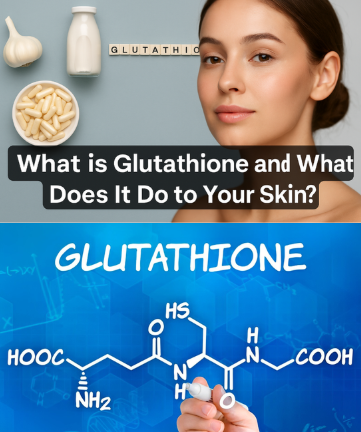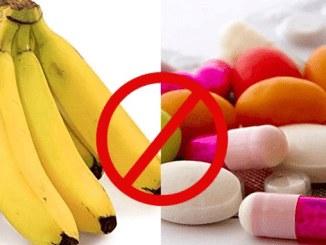
Introduction
Glutathione has become a buzzword in the beauty and wellness industry. From whitening treatments in luxury spas to intravenous injections in beauty clinics, it’s marketed as a miracle solution for clear, glowing skin. But here’s the catch: glutathione is more than just a cosmetic trend. It’s actually a powerful antioxidant naturally produced by your liver, with significant roles in health and disease prevention. If you’ve been curious about using glutathione for beauty purposes, it’s important to look at the science behind it before jumping on the trend.
What Exactly is Glutathione?
Glutathione is often called the “master antioxidant” because of its ability to protect cells from oxidative stress. It is made up of three amino acids—glutamate, cysteine, and glycine—and is naturally present in your body. While your liver produces it, you can also get it from food sources such as fresh fruits, vegetables, and meats. Supplements are available in capsules, liquids, and injections, though their effectiveness can vary.
Health Benefits of Glutathione
Glutathione is not only about skin tone; it plays a vital role in overall health. Low levels are linked with numerous conditions, including:
- Heart problems such as atherosclerosis and high cholesterol.
- Neurodegenerative diseases like Alzheimer’s, Parkinson’s, and memory loss.
- Immune system disorders including AIDS and chronic infections.
- Lung diseases like cystic fibrosis, pulmonary fibrosis, and complications from HIV.
- Liver conditions, including nonalcoholic fatty liver disease, as suggested in a 2017 clinical trial.
- Autism, where studies found lower glutathione levels in children with the condition compared to others.
Some research even suggests glutathione may slow the growth of cancerous cells, though evidence remains inconclusive. Its powerful antioxidant and anti-inflammatory actions continue to attract attention from researchers worldwide.
Glutamine vs. Glutathione: What’s the Difference?
Many people confuse glutamine with glutathione, but they are very different.
- Glutamine is the most abundant amino acid in the bloodstream. It helps remove ammonia, supports digestion, boosts immunity, and promotes brain function. Your body makes plenty of it, so deficiencies are rare.
- Glutathione, on the other hand, is a tripeptide antioxidant built from glutamate, cysteine, and glycine. It helps repair tissues, build proteins, regulate immunity, and protect against oxidative damage. A deficiency in glutathione can lead to oxidative stress, which accelerates aging and increases disease risk.
Video : What is Glutathione?
What Does Glutathione Do to Your Skin?
Here’s where it gets interesting. Glutathione’s ability to lighten skin comes from its effect on melanin, the pigment responsible for skin color. It blocks the enzyme tyrosinase, which helps produce melanin, and shifts melanin production toward lighter pigments. On top of that, its antioxidant properties fight free radicals, which are partly responsible for dark spots and uneven skin tone.
Can Glutathione Really Lighten Skin?
Skin-lightening effects of glutathione were discovered accidentally when high doses were used for other treatments. Since then, it has been incorporated into face washes, creams, pills, and injections. While many swear by its ability to reduce pigmentation, freckles, and blemishes, clinical evidence supporting its safety and effectiveness is limited.
In some countries like the Philippines, intravenous glutathione became wildly popular in salons and spas. However, after reports of thyroid problems, kidney damage, and severe skin disorders, the Food and Drug Administration (FDA) in the Philippines banned its cosmetic use. Similarly, in the United States, glutathione injections are not FDA-approved due to safety concerns and lack of reliable data.
Why Isn’t Glutathione Approved by the FDA?
The FDA does not endorse intravenous glutathione for skin whitening because of several concerns:
- No scientifically established dosage or long-term safety data.
- Potential damage to the liver, kidneys, and nervous system.
- Risk of severe reactions such as Stevens-Johnson Syndrome.
- Overuse and improper administration in non-medical settings.
While glutathione remains under investigation, the FDA strongly advises against using injections for cosmetic skin lightening.
Who Should Prescribe Glutathione?
Given the risks, glutathione should never be self-prescribed. If you are considering it for medical reasons, you must consult a qualified healthcare professional. Pregnant and breastfeeding women are strictly advised to avoid it altogether. Even for beauty purposes, unregulated use can trigger dangerous side effects that outweigh the benefits.
Video : Glutathione Benefits | Must See!
Conclusion
Glutathione is a powerful antioxidant with impressive health benefits, from supporting immunity and detoxifying the body to slowing the progression of certain diseases. Its cosmetic appeal as a skin-lightening agent has made it a global trend, but the hype often overshadows the risks. While it can reduce pigmentation and promote brighter skin, the lack of strong clinical evidence and potential for harmful side effects make it a treatment that should be approached with caution. If you are drawn to glutathione for beauty reasons, always consult a doctor first and remember: real beauty starts with healthy skin, not shortcuts.


